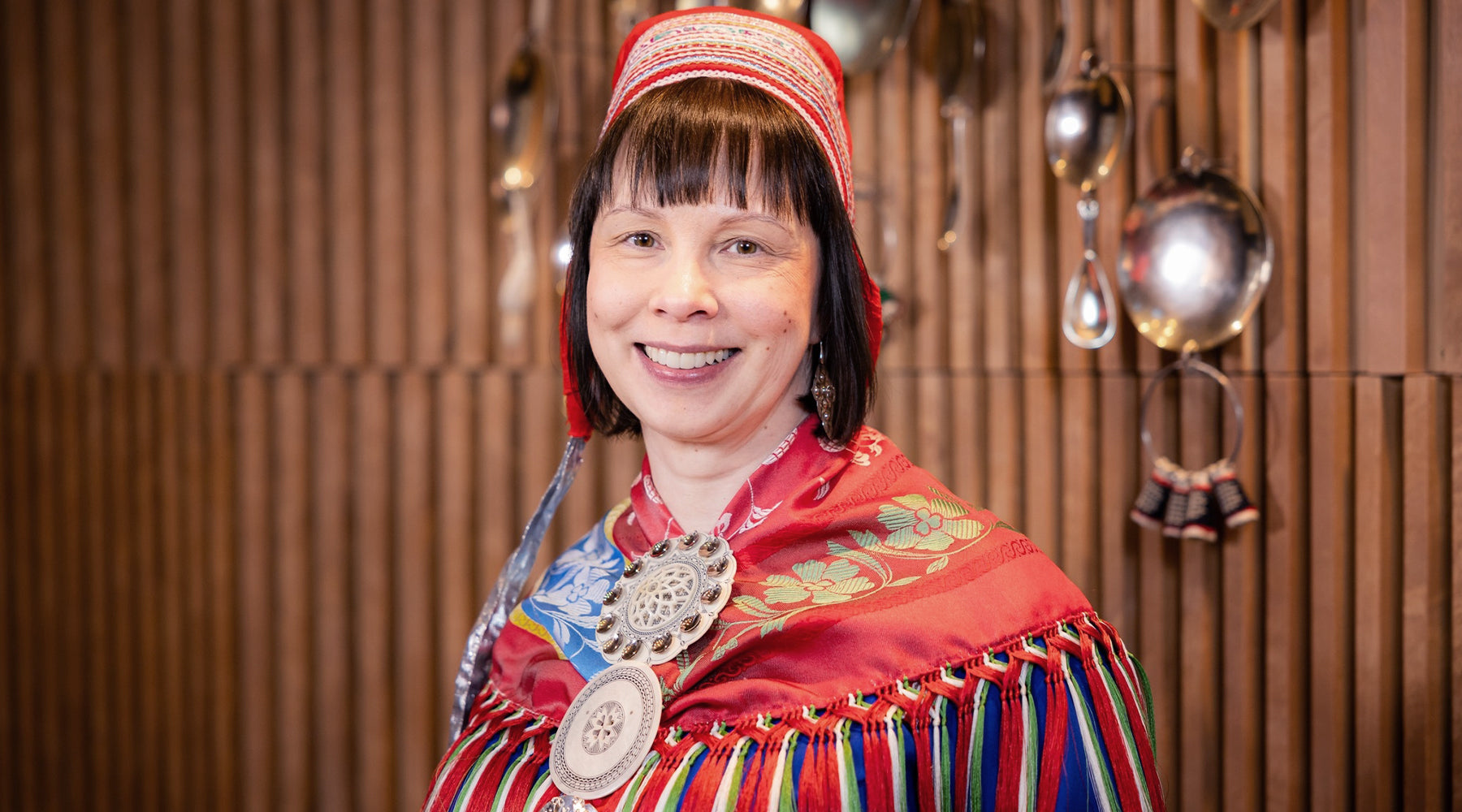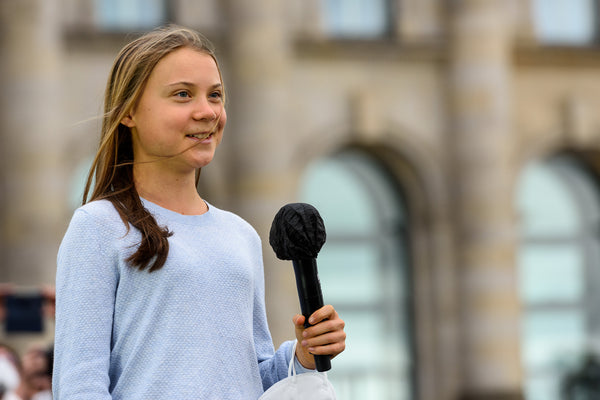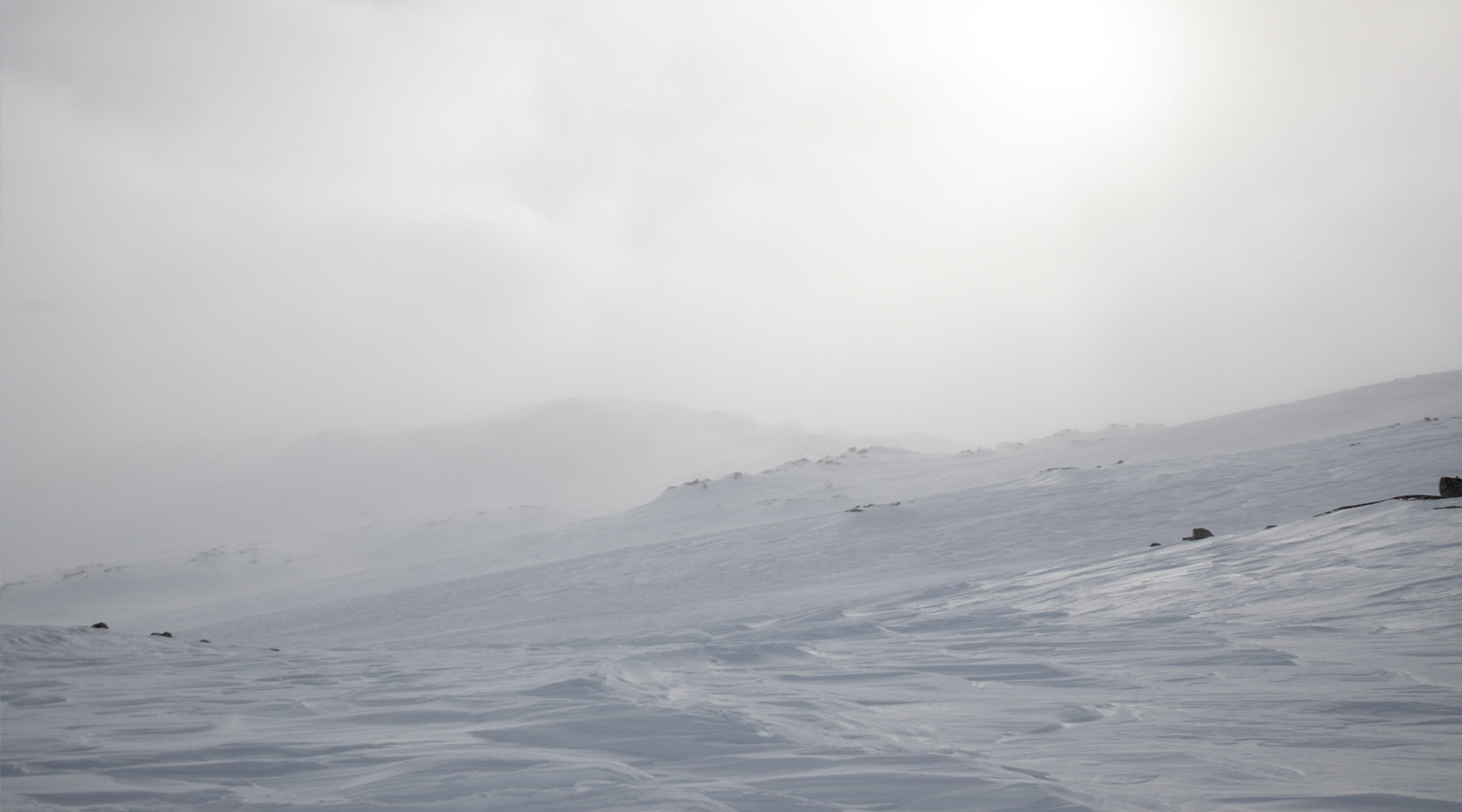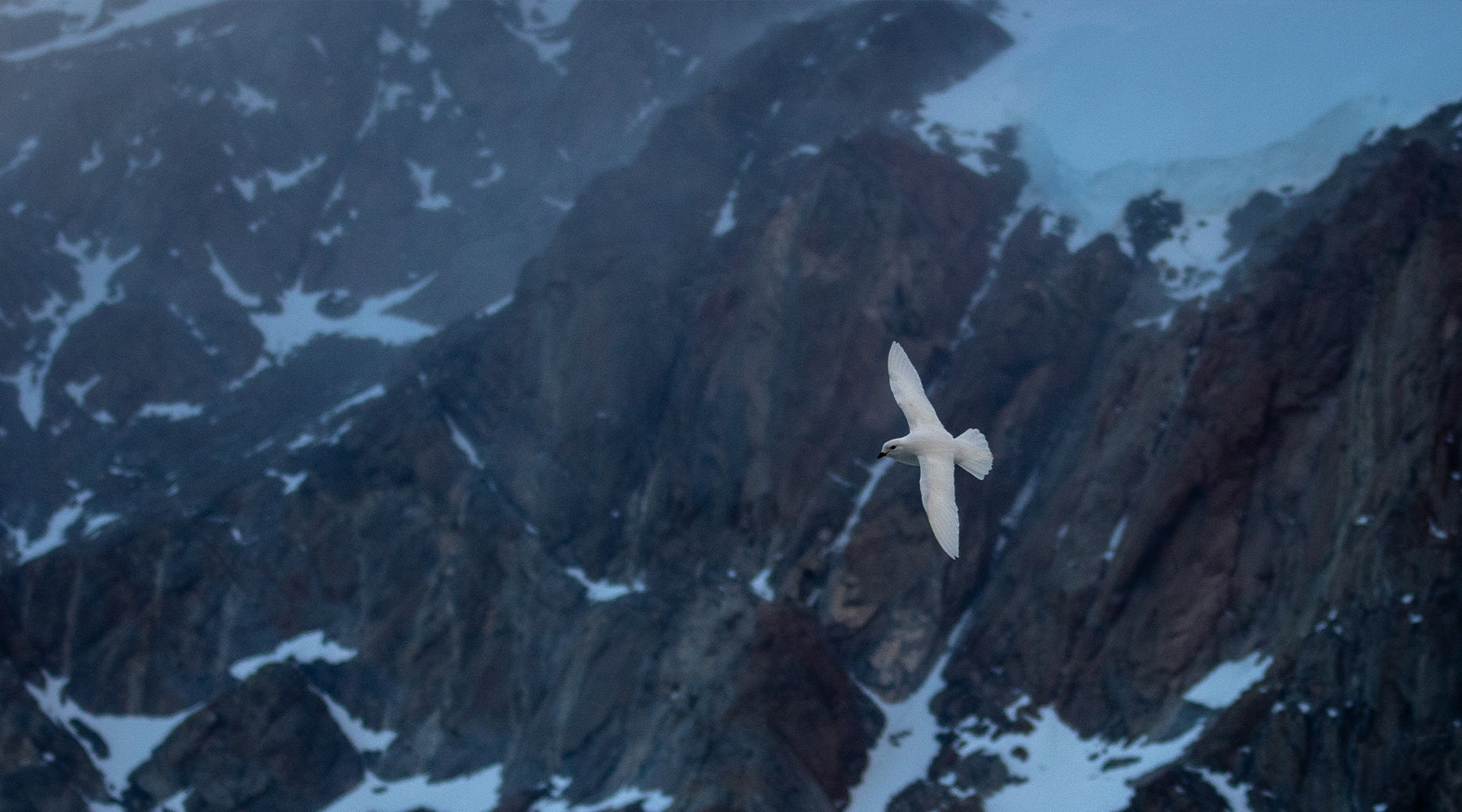
Shackleton Medal Judge Pirita Näkkäläjärvi on the Sámi Greta Thunberg
Shackleton Medal judge Pirita Näkkäläjärvi is the recently elected President of the Sámi Parliament in Finland. Here she talks to Rachel Halliburton about strong Sámi women, the importance of the outdoors, and the Sámi Greta Thunberg.
‘We live with the consequences of climate change every day.’ Pirita Näkkäläjärvi is talking to me on Zoom from inside the Arctic Circle. ‘Our reindeer-herders have been noticing changes since the Sixties. Our people have been the eyes and ears on the ground because they’re out there every day, whether they’re fishing, hunting or herding reindeer. So when people are looking at ways of protecting the environment they should be taking into account the first-hand knowledge that we have.’
Näkkäläjärvi is one of the bold, passionate voices speaking out for the indigenous inhabitants of the Arctic – people who, despite leading their lives more sustainably than most of the world, have found themselves on the frontline of climate change. This January she was elected as President of the Sámi Parliament in Finland, which means she is now at the forefront of discussions about how indigenous wisdom can inform international policy. Increasingly scientists and politicians in the rest of Europe are realising the immense value of insights provided by a people whose detailed understanding of the environment means they have 300 words for snow and eight words for different seasons. ‘Because our language is very specified, it has an almost scientific precision,’ she says. ‘It’s like a tool for surviving in this environment.’
Language and the environment
A recent article for BBC future described how climate change means that certain words are starting to disappear from the Sámi language. For instance, the word ‘ealát’ describes the conditions in which reindeer can easily find nutritious food underneath the snow. It’s a complex idea, since it refers both to the fact that there will be no ice layer impeding the reindeer’s search, and also that the lichen beneath the snow will be fresh rather than mouldy. Since the beginning of the twenty-first century, neither of those conditions can be taken for granted any more.

The multi-lingual Näkkäläjärvi – whose fluency in English testifies in part to the time she spent doing an MSc in Media & Communications at the London School of Economics – brings a formidable set of skills to any negotiating table. She also has an MSc in Economics – from the Helsinki School of Economics, which has enabled her to work on Mergers & Acquisitions projects with multinational companies including Merrill Lynch, PwC and Nokia.
Beyond this she has worked in journalism, most notably as the Head of the Sámi-language operations of the Finnish Broadcasting Company. Yet she is the first to remind people that her worldview is shaped by the Sámi’s relationship with the land, and their understanding of the balance that needs to be struck between nature and humanity.
A tradition of strong women
Strikingly, the Sámi people have always seen men and women as equals – so much so that as their contact with the EU has increased, they have realised they are more advanced in gender equality than many other societies. ‘Girls are brought up to do the same activities as boys,’ she says. ‘So we’ve always taken part in reindeer herding, fishing, driving snow mobiles and rowing boats. It’s part of our upbringing that we’re encouraged to be active and take the initiative.’ In adulthood it’s often the men who make reindeer-herding their entire livelihood – Näkkäläjärvi’s own brother herds reindeer full time. This means that while they’re away for months on end, the women run every aspect of society from education to economics.
The distinctive Sámi culture is spread across four countries – Norway, Sweden, Finland and the Kola Peninsula in Russia (the overall region is known as Sápmi) – and they are one of the oldest indigenous communities in the world. Yet they have faced huge prejudice as non-indigenous peoples have colonised their land and attempted to ban their languages and traditions.
Combating green colonialism
In recent years clashes have arisen because of what has been termed ‘green colonialism’ – attempts to produce sources of renewable energy that have simultaneously trampled on indigenous rights. Reports from Sweden recently revealed that renewable energy companies have been trying to set up secretive agreements with Sámi herding communities that have in effect reduced the Sámi’s ability to take court action if their livelihood is impacted. In Norway, a three-year dispute has only just been resolved over the construction of Europe’s largest wind farm, which threatened to disrupt valuable reindeer habitat. While in Finland, a fishing ban on salmon in the Teno River continues to have a huge impact on the livelihoods and identities of people who live close to it.
‘The Sámi people are not a museum,’ declares Näkkäläjärvi. ‘We are a living culture and for thousands of years we have adapted to the changing world. But now the climate is changing at such a rapid pace that it’s hard for anyone to keep up. The winters are slipping away. Sometimes there’s too much rainfall. At others too much snow. The temperature can swing between being minus 30 degrees centigrade and minus one.’
While inevitably this means they welcome initiatives to cut down on carbon emissions, they are equally going to challenge anything that directly threatens the ecosystem that has sustained them for millennia. She provides an example which reveals precisely why the disappearance of a word like ‘ealát’ is so intertwined with the Sámi’s fight for survival. ‘These days it is very difficult for the reindeer to find food below the snow,’ she says. ‘A lot of them have died in recent years. Increasingly we’ve had to bring them home to feed them to keep them alive. Most reindeer herders think of their animals’ welfare more than they think of their own. Yet this means the cost of looking after them is rising substantially, since suddenly they’re having to pay for fodder.’
Voices for the future
Which activists does she admire? ‘I think Greta Thunberg is a great example to people –she’s both courageous and doesn’t soften what she wants to say. We also have some fantastic young activists in our own community. There is, for instance, Ella Marie Hætta Isaaksen, a musician who is using her creativity to make a huge impact. Isaaksen was at the forefront of the protests that forced the Norwegian Government to make concessions to the Sámi people when it was constructing its major windfarm.] She works with people like Greta Thunberg and I think is well on her way to having her own international profile.’

Näkkäläjärvi is also excited about the work being done by the recently formed Sámi Climate Council in which half of the twelve members are academics and half bring traditional knowledge to the discussions. Set up last November, it will work with politicians to make ensure that when they legislate to reduce climate change, they are taking everybody’s rights into consideration. ‘As an indigenous people it is important for us to have a strong voice,’ she says. ‘We are happy to live within the Nordic states but we must also be able to decide our future and our matters.’
The Shackleton Medal for the Protection of the Polar Regions
The Shackleton Medal is an annual £10,000 prize, awarded to the person judged to have done the most to protect the polar extremes so valued by The Boss. For 2024 John Geiger joins the esteemed judging panel. If you know someone striving to the utmost to protect the polar regions you can nominate them for the Shackleton Medal here. Nominations are open until 5th April 2024.


